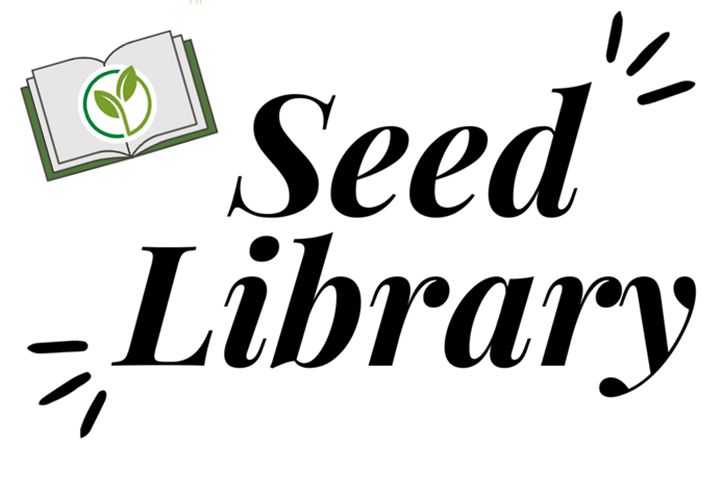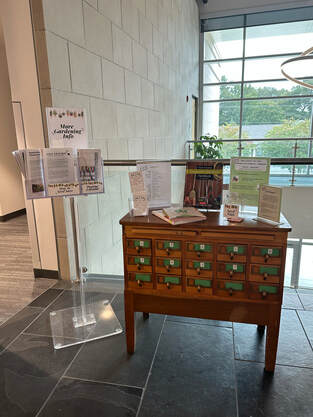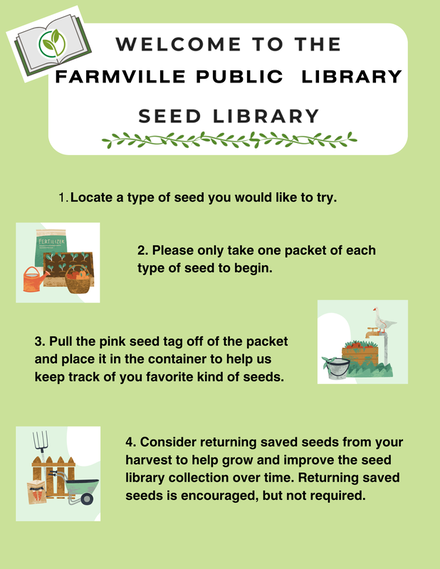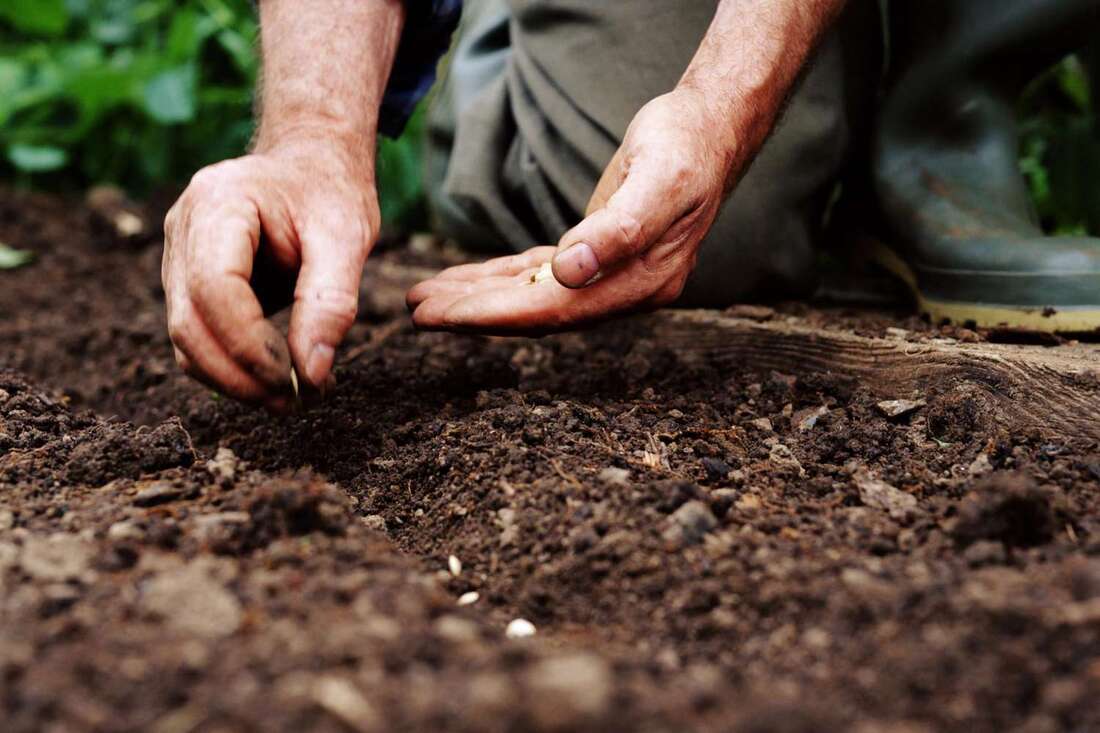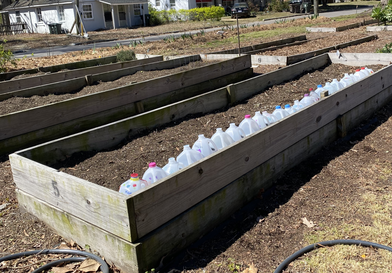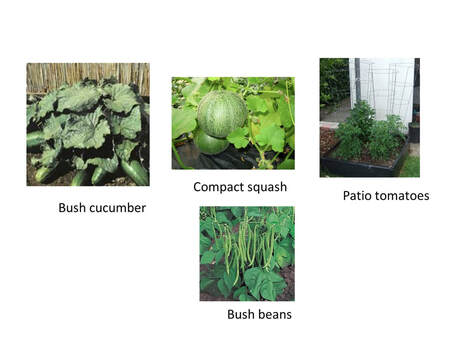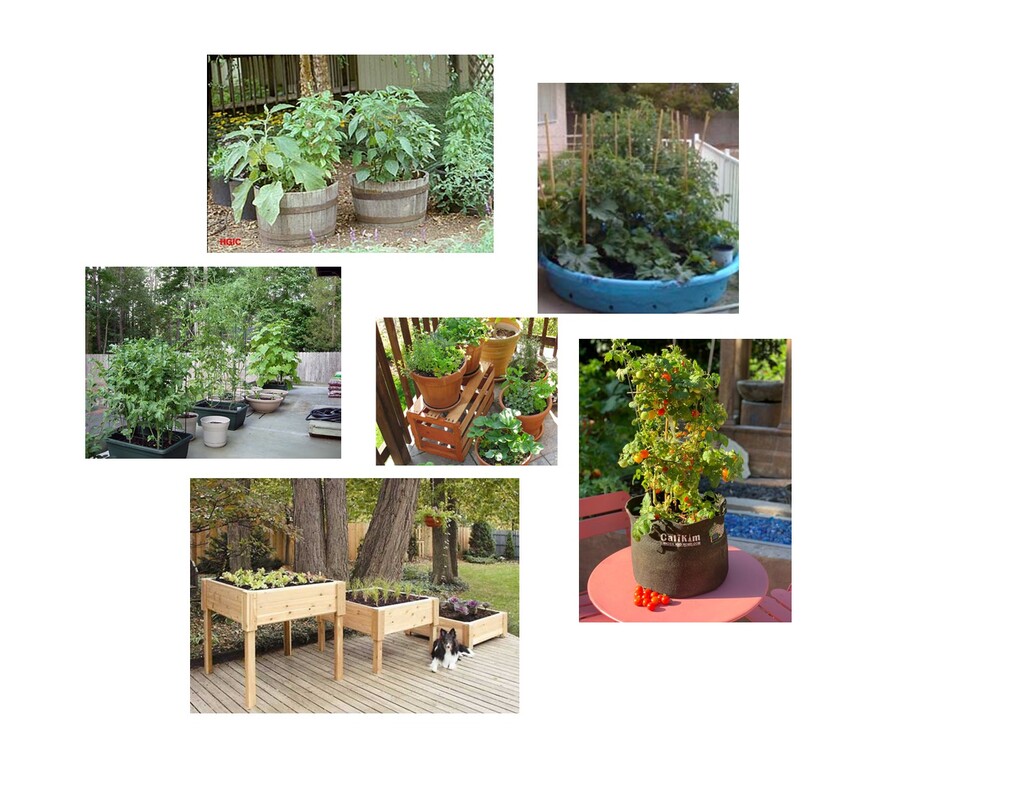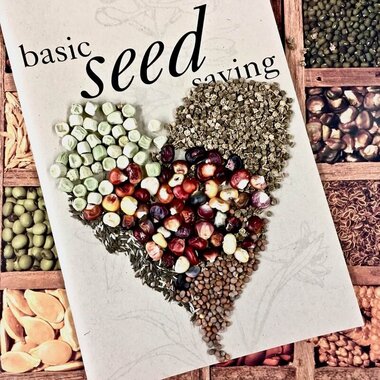|
What is a seed library?
The Farmville Public Library seed library is basically what it sounds like: community members donate seeds to the library, we organize them for the public, and then we offer them for free to anyone and everyone in the community to "borrow". You do not need to donate seeds to take seeds out. We would of course appreciate it if you saved some of your seeds at the end of the season and donated them back to us, but this is not a requirement. You do not need a Farmville library card to take seeds out. This resource is available to everyone! Why have a seed library? Our mission is simple: we hope that by offering a Seed Library, we will be helping to create a healthier and more self-reliant community. Our hope is that this project will help to prevent hunger and promote nutrition by enabling everyone in the community to grow their own food. |
How to Use the Seed Library
Our seed library is stored in the vintage card catalog located on the second floor across from the circulation desk. Take a couple of seed packets and help us plant a greener future. Library cards are not required to take seeds from the seed library but please limit yourself to a few varieties each visit to ensure everyone has a chance to participate. Please also limit yourself to one packet per variety.
Seed packets are arranged in alphabetical order by their common name (beet, carrot, turnip). Each of the brown seed packets was taken directly from a commercial seed packet and has basic planting, transplanting, and harvesting information attached. White seed packets contain seeds that were saved by gardeners in our own community and donated to the library. These also have some planting and harvesting information attached.
Once you have selected your seeds, please remove the pink or green "seed tag" attached to the seed packet and place it in the "Seed Tag" jar. This helps us keep track of the seed varieties being used to ensure that we keep the library stocked with our community's favorites.
Plant your new seeds and watch them grow! At the end of the season, consider saving some of your seeds and return a few in a donation packet. This way, we can keep the seed library growing!
If you are new to gardening or would just like some extra information on when and how to plant, there are several calendar and planting resources listed below. Some are specifically for Eastern North Carolina.
Here is a list of our current seeds:
Arugula - Astro Collards - Georgia Southern
Beet - Ruby Queen Lettuce - Prizehead
Bush Beans - California Black-eye, Cowpeas Onion - Early White
Bok Choy - White Stem Parsnip - Hollow Crown
Cabbages - Chinese - Michihili Pea - Early Frost
Copenhagen Market Early Radish - Cherry Belle
Golden Acre Rutabaga - American Purple Top
Late Flat Dutch Spinich - Matador - Viking
Red Acre Swiss Chard - Pink
Carrot - Tendersweet Turnip - Purple Top White Globe
Cauliflower - Igloo
Seed packets are arranged in alphabetical order by their common name (beet, carrot, turnip). Each of the brown seed packets was taken directly from a commercial seed packet and has basic planting, transplanting, and harvesting information attached. White seed packets contain seeds that were saved by gardeners in our own community and donated to the library. These also have some planting and harvesting information attached.
Once you have selected your seeds, please remove the pink or green "seed tag" attached to the seed packet and place it in the "Seed Tag" jar. This helps us keep track of the seed varieties being used to ensure that we keep the library stocked with our community's favorites.
Plant your new seeds and watch them grow! At the end of the season, consider saving some of your seeds and return a few in a donation packet. This way, we can keep the seed library growing!
If you are new to gardening or would just like some extra information on when and how to plant, there are several calendar and planting resources listed below. Some are specifically for Eastern North Carolina.
Here is a list of our current seeds:
Arugula - Astro Collards - Georgia Southern
Beet - Ruby Queen Lettuce - Prizehead
Bush Beans - California Black-eye, Cowpeas Onion - Early White
Bok Choy - White Stem Parsnip - Hollow Crown
Cabbages - Chinese - Michihili Pea - Early Frost
Copenhagen Market Early Radish - Cherry Belle
Golden Acre Rutabaga - American Purple Top
Late Flat Dutch Spinich - Matador - Viking
Red Acre Swiss Chard - Pink
Carrot - Tendersweet Turnip - Purple Top White Globe
Cauliflower - Igloo
Planting & Growing Your Seeds
|
How do I know when to plant?
If you are a first-time vegetable gardener, there are some great tips in this beginner's guide from NC State Cooperative Extension:
There are several planting guides and calendars available. The calendars listed below are specifically targeted to eastern North Carolina and were published by NC State University for the North Carolina Cooperative Extension Service. The first calendar lists seed varieties in alphabetical order. The second is organized by the season and month in which the seeds should be planted.
| |||||
| |||
What is winter sowing?
|
Seeds are sown in containers that are placed outside in the winter. In the example shown on the right, clean milk or water jugs were used. You can also use 2-liter bottles or any other food safe plastic container that has been cleaned and dried.
Be sure to make vent slits in the lids (or leave off the bottle cap) to let in some rain to keep the soil moist and allow warm air to escape. Labeling your containers with the seed name is very important. Be sure to place a label card inside the container or place a label on the bottom. Labels that are exposed to sunlight and weather will fade. Winter sowing containers are like mini-greenhouses or cold frames. They work best with seeds from cool season crops, not for warm season crops. |
Container Gardening
What edibles can grow in containers?
beans, chard, beets, radishes, squash, okra, sweet potatoes, and cucumbers
| |||
What kinds of containers can be used?
Seed Saving
|
How do you seed save?
When you save and share seeds, you are preserving heirloom varieties and helping to sustain our seed library.
It's important to save seeds from open-pollinated plant varieties. Open-pollinated seeds are genetically stable and produce plants true to type. When you plant open-pollinated seeds and respect isolation distances, you can raise plants year-after-year and expect to grow your favorite variety. Hybrid seeds are different from open-pollinated seeds. Hybrid seed is the product of two different plant varieties. Seeds collected from these plants will not produce plants true to type. If you grow both hybrid and open-pollinated plants in your garden, follow the isolation guidelines. Farmville Seed Library does not collect seeds from hybrid varieties. When donating seeds back to the library:
Make sure that donated seeds are:
| ||||||||
Disclaimer
You should know that we share seeds grown by community members with love and care like our ancestors have done for thousands of years. It may not meet state germination or labeling standards. We do not knowingly accept or share any seeds that are chemically treated, patented, or genetically modified.
|
While we do our best to ensure the quality of our seeds,
we cannot guarantee that all saved seed donations from the public are open-pollinated or heirloom varieties. We also cannot guarantee that all seeds will germinate or produce viable plants. |
If you do have any problems with the seed you get from the seed library, please let us know so we can try to fix it for future users! Tell us in person or email us at [email protected].
|

